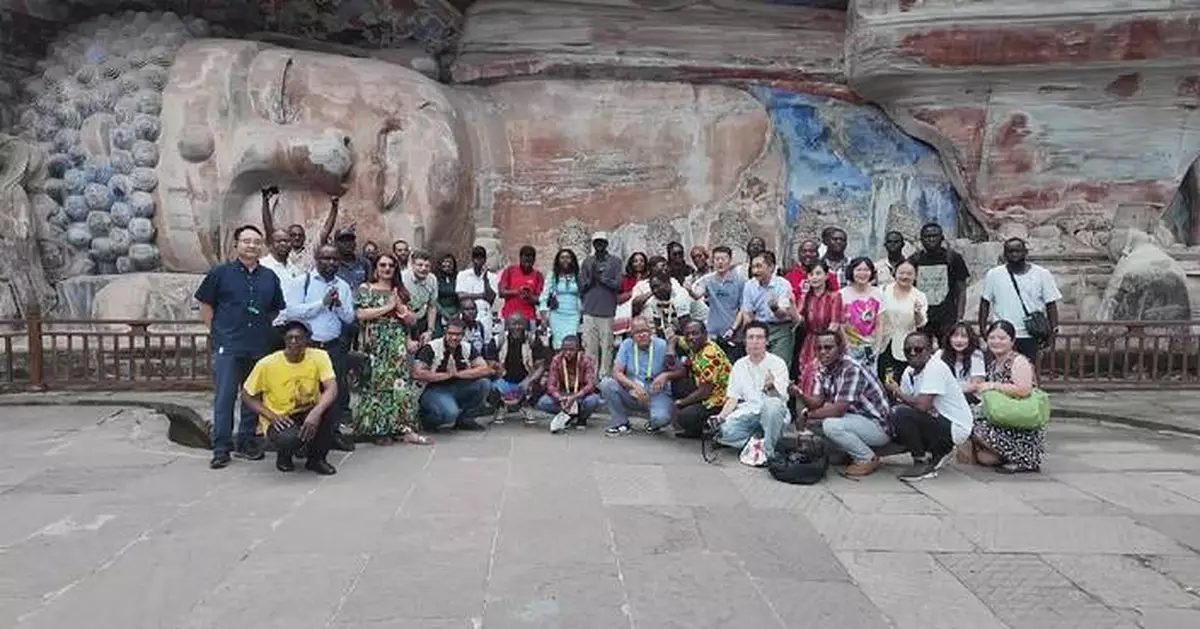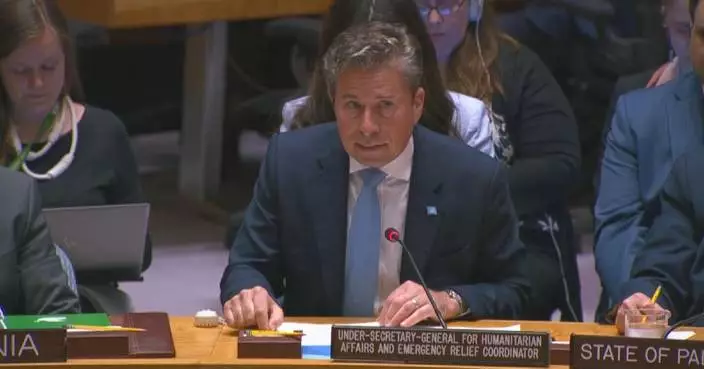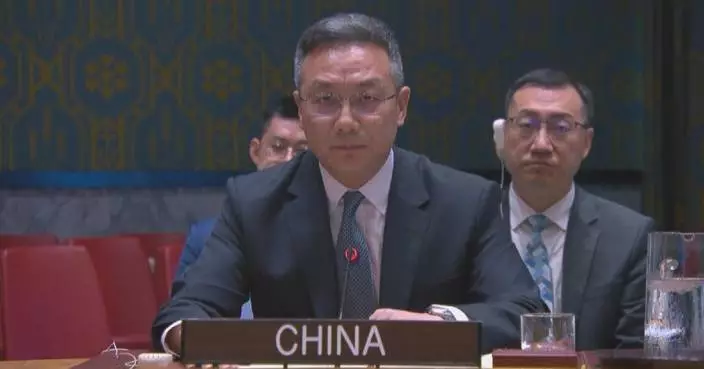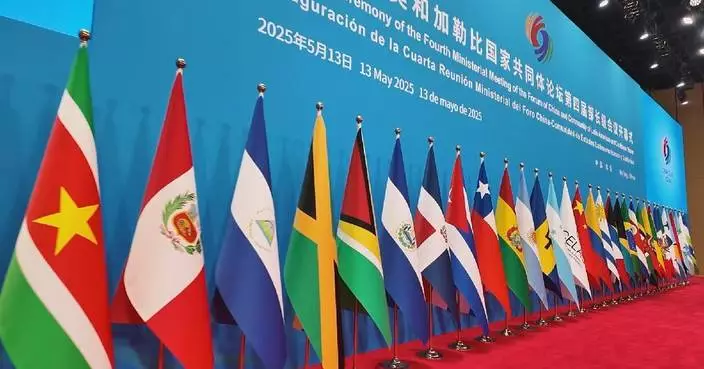A delegation of African journalists who had just finished covering a major event on China-Africa cooperation in Beijing traveled to southwest China's Chongqing Municipality to enjoy the charm of the mountainous city.
The three-day 2024 Summit of the Forum on China-Africa Cooperation (FOCAC) concluded in the Chinese capital on Friday. Some African journalists took advantage of being in China to learn more about the country.
At Liziba Station, one of Chongqing's must-visit spots, these journalists were amazed by a surreal scene that light rail trains run through a residential building.
Thousands of people visit the site every day, not for the public transportation, but to take pictures of the railway line through a 19-story building.
The journalists were curious about the story behind the rail line, such as how does the government reduce the noise and maintain the railway without disturbing residents, and how much was invested to build the station.
"Many lessons to learn, many things to behold. It's amazing to see things made easy, soft touch. That's the kind of work we do. But I think we only desire that this be done in Africa. It's a desire that in our generation, our children will grow up to see what parents have really done to make life worth living. Kudos to China, kudos to concepts of modernization," said Fortune Egbeji Abang, a Nigerian journalist.
The delegation was also invited to a local teahouse for a rest since it was scorching hot in Chongqing.
The traditional long-spout teapot pouring performance and the Sichuan Opera's face-changing techniques clearly left a deep impression on these African guests.
"They really like their culture, and they protect their culture. And this is the message for me that I'm taking from now that it's better to protect your culture because as you can see we are here, so many people from African countries just to explore and see and experience about Chinese culture. And I think, because we, as African people, we have our own culture. And I think we are sharing now," said Abubakar Harithi Bakar, a Tanzanian journalist.
The reporters said they hope to use the visit as an opportunity to introduce Chongqing to audiences back home.
Through their lenses and articles, they say, they want to promote more cultural exchanges and understanding between China and Africa.
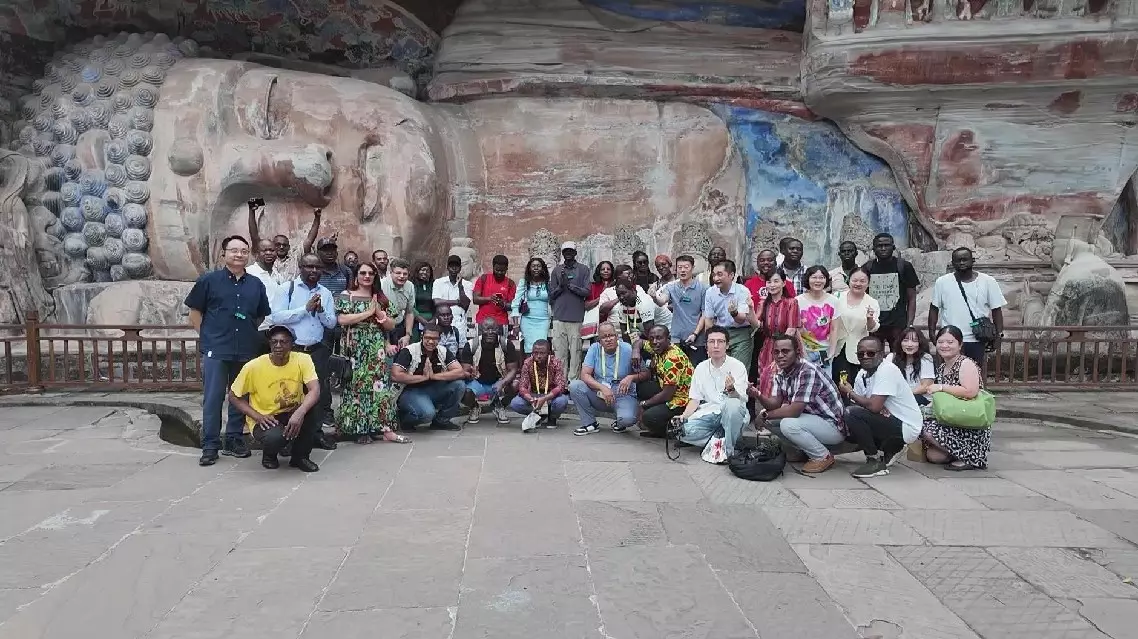
African journalists experience Chongqing vibes
Mounting uncertainty over the U.S. tariff policies under President Donald Trump's administration is fueling distress among the farmers of Iowa state, a U.S. state long regarded as the "granary and breadbasket of America," and disrupting the agricultural sector, particularly its soybean industry.
Iowa's agricultural sector is heavily export-dependent, and the U.S. abuse of tariffs has left the state's farmers uncertain about how to plan for the future amid sudden changes in policy direction.
"It has been really difficult, especially with the stress on the market since the announcement of the tariffs. Any unsold soybeans that we have now will sell at a loss. It's what does the next three years look like in this very uncertain environment with different tariff ideas every day, every week. Like how do we plan as a business for that," said farmer Corey Goodhue.
The uncertainty has pushed some farmers to shift to alternative crops like corn, which currently faces fewer trade obstacles. But the switch comes at a cost. Prices for fuel, fertilizer, and other inputs have surged under the broader tariff regime.
Grant Kimberley, a large-scale farm operator and senior director of market development for the Iowa Soybean Association, said costs are rising across the board.
"We don't ever like to see food and agriculture used as a weapon in a trade disagreement because it doesn’t do either country any good," he said.
Data from agricultural equipment manufacturers showed the cost of machinery in the United States rose 18 percent year on year in spring 2025.
The ripple effects of falling farm income are already being felt in the wider community.
"So I think the tariffs have a trickle-down effect. As for the commodity, if the farmers don't make money, then no one else benefits. John Deere ( the world's leading tractor maker) lays off employees, and this situation just works its way through the community. So small businesses are really struggling with it," said Goodhue.
Policy analysts have warned that the longer-term economic damage could extend well beyond the farm belt.
"At this point of time, it has not yet begun to bite because people have already had inventories of these goods at the lower tariff rates. But soon, at some point of time, and it will be soon that the impact will be felt at grocery store counters. We will see areas where the U.S. was very competitive losing its competitiveness, and with other suppliers taking their position," said Sourabh Gupta, senior Asia-Pacific policy specialist at the Institute for China-America Studies.

US tariff policy turmoil threatens Iowa's farmers, disrupting exports



